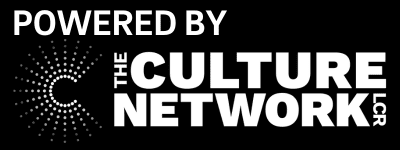By Sarah Westhead

In this blog post, we will explore how learning British Sign Language (BSL) can help promote diversity and inclusivity within the arts and culture sector, as well as the benefits that come with learning this unique language. We will also highlight a number of places where you can learn BSL in Liverpool and the city region.
So, whether you’re an artist, performer, or just interested in expanding your horizons, join us as we dive into the world of BSL.
BSL and Arts & Culture
As the arts and culture sector continues to expand and evolve, the importance of diversity and inclusivity is more evident than ever. One way to promote inclusivity is through the learning and use of British Sign Language (BSL), a visual language used by the Deaf community in the UK.
Learning BSL can open up new opportunities and avenues for artists, performers, and other professionals in the arts and culture sector. Here are just a few reasons why learning BSL can be so important:
- Accessibility: By learning BSL, artists and performers can make their work more accessible to Deaf and hard-of-hearing audiences. This not only promotes inclusivity but also expands the potential audience for their work.
- Communication: Learning BSL can help bridge the communication gap between hearing and Deaf communities, allowing for more effective communication and collaboration between artists, performers, and other professionals in the arts and culture sector.
- Creativity: Learning BSL can also inspire creativity and new artistic ideas. Many Deaf artists incorporate sign language and visual communication into their work, creating unique and powerful pieces that challenge traditional artistic norms.
- Representation: By learning BSL and incorporating it into their work, artists and performers can help to represent and raise awareness of the Deaf community and their culture, which is often underrepresented in the wider society.
- Personal Development: Learning BSL can also have personal benefits, such as increased confidence, improved communication skills, and a greater appreciation for diversity and inclusivity.
Where to learn BSL in Liverpool and the city region
1. Deaf Awareness and Introduction to Sign Language at Hugh Baird College
This one-day course at Hugh Baird College runs at various points throughout the year and is a great place to start for those being introduced to sign language.
2. Merseyside Society for Deaf People (MSDP) -British Sign Language Training
MSDP provides a range of statutory services for three local councils (Liverpool, Sefton and Wirral) and they are delivered from two centres in Liverpool and Wirral. MSDP’s training is accredited and is also able to provide sign language interpreters. MDSP also offers training in equality and diversity as well as customised BSL information services.
3. Signs4Life Deaf Awareness Training
As part of its deaf awareness training, Signs4Life are offering a six-week accredited online BSL course. This course is one of many courses they run, including a Makaton course. The training can be tailored to a specific organisation’s needs and they work within the social care, healthcare, housing, education, public services, arts and culture, and corporate sectors.
4. British Sign Language Level 1 at Wirral Metropolitan College
This course at Wirral Metropolitan College runs during the academic year from September with the opportunity to complete the course with a College Certificate in December or continue and complete the full L1 qualification in June. The course runs part time and is free to students who are 19 or above. There is the opportunity to progress onto Level 2 BSL after this course.
5. Sing and Sign helping babies communicate before speech
Who says that you are too young to learn sign language? In fact babies learn to communicate non-verbally before they learn to talk. At these Sing and Sign classes (offered both locally and online) babies and parents can have lots of fun as they sing and sign together.
6. Deaf Active
Deaf Active offers Level 1 & Level 2 Signature approved British Sign language courses. They also tailor their classes to suit the needs of companies, organisations and business, both in the public and private sector.
In conclusion, learning BSL is not only important for promoting inclusivity and accessibility in the arts and culture sector, but it can also lead to personal and professional growth. By taking the time to learn and use BSL, artists and performers can create more meaningful and impactful work that resonates with a wider audience. So, why not consider learning BSL and taking the first step towards a more inclusive and diverse arts and culture sector?

